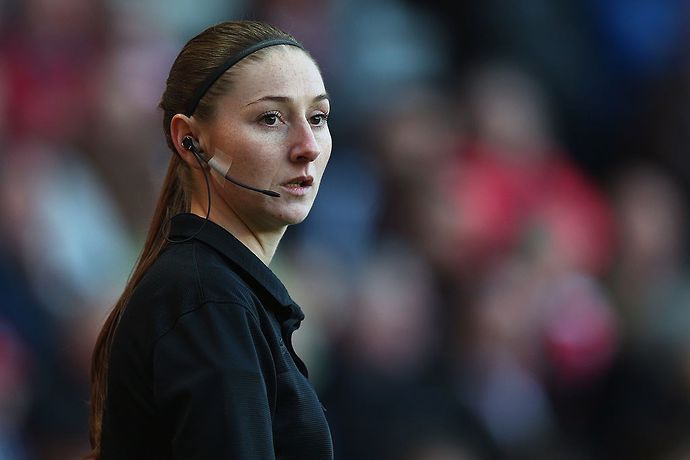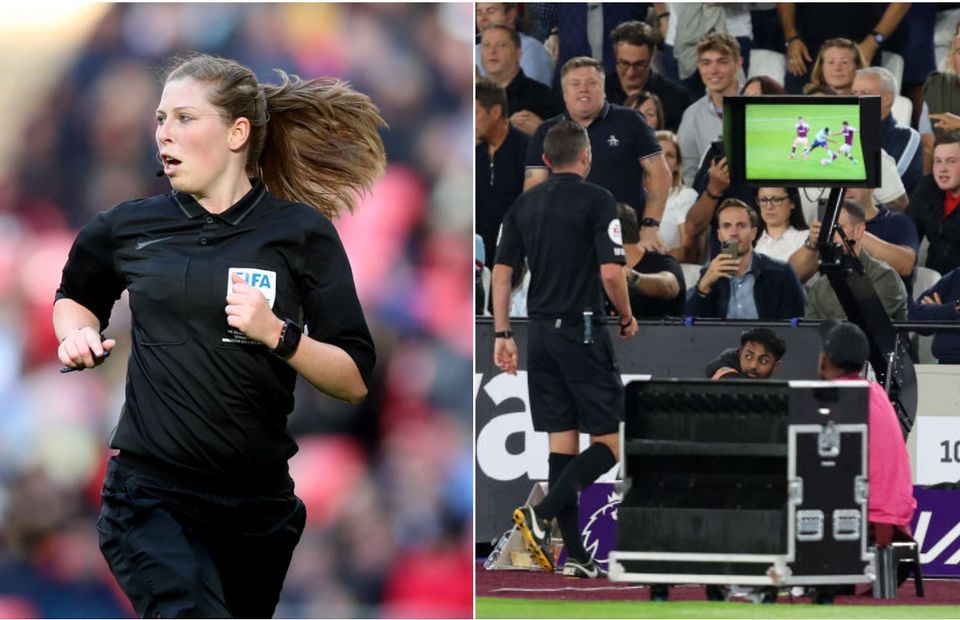This year’s brand new Women’s Super League broadcasting deal has proven a joy to many, but not for referees.With increased coverage of the women’s game and more exposure to the general public, this has naturally cast more spotlight onto any officiating mishaps and therefore more scrutiny as well.Is it fair, however, to criticise these referees in the same way we might lambast Premier League officials? The answer, most certainly, is no.Because these poor decisions that are suddenly coming under fire are commonplace in the women’s game. In truth, they have been for some time.For example, last year WSL referee Lucy Oliver booked Brighton striker Kayleigh Green twice against Everton but failed to send off the player in the process. ENTER GIVEAWAYYet, while the temptation is to berate these refs for such blunders, it’s important to remember these officials are not professional and are not afforded the same training and development as those who are employed full-time.Even those who have turned pro, such as Sian Massey-Ellis, have tended to make the leap to working in men’s football, where they are paid more handsomely.Despite the gulf in experience between WSL and Premier League referees, many are beginning to scrutinise them in the same fashion.Last week, Abigail Byrne was subject to an analysis segment on Sky Sports, where former Premier League referee Dermot Gallagher condemned her officiating performance in Man City’s defeat to Tottenham.Byrne had allowed Spurs’ winner to stand, despite a clear hand-ball in the build-up which left City boss Gareth Taylor furious.
ENTER GIVEAWAYYet, while the temptation is to berate these refs for such blunders, it’s important to remember these officials are not professional and are not afforded the same training and development as those who are employed full-time.Even those who have turned pro, such as Sian Massey-Ellis, have tended to make the leap to working in men’s football, where they are paid more handsomely.Despite the gulf in experience between WSL and Premier League referees, many are beginning to scrutinise them in the same fashion.Last week, Abigail Byrne was subject to an analysis segment on Sky Sports, where former Premier League referee Dermot Gallagher condemned her officiating performance in Man City’s defeat to Tottenham.Byrne had allowed Spurs’ winner to stand, despite a clear hand-ball in the build-up which left City boss Gareth Taylor furious. Chelsea head coach Emma Hayes recently called for the introduction of VAR in the WSL, stressing the game is “selling itself short” at the moment.As of now though, there appears to be no plans to implement such technology, with reports suggesting there are logistical issues with doing so.And Baroness Sue Campbell, director of women’s sport at the FA, said last year there is still no time frame on the professionalism of referees in the women’s game.“To be fair, Premier League referees are full-time and they still get just as much criticism. It’s just a tough job, isn’t it? Refereeing is a tough, tough gig,” she argued.In this way, it’s grossly unfair to cast blame on officials when no steps are being taken to reduce errors in these matches.
Chelsea head coach Emma Hayes recently called for the introduction of VAR in the WSL, stressing the game is “selling itself short” at the moment.As of now though, there appears to be no plans to implement such technology, with reports suggesting there are logistical issues with doing so.And Baroness Sue Campbell, director of women’s sport at the FA, said last year there is still no time frame on the professionalism of referees in the women’s game.“To be fair, Premier League referees are full-time and they still get just as much criticism. It’s just a tough job, isn’t it? Refereeing is a tough, tough gig,” she argued.In this way, it’s grossly unfair to cast blame on officials when no steps are being taken to reduce errors in these matches.
If women’s football wishes to continue growing and elevate its stature, then increased coverage of games is simply not enough. In the same way women’s players are worthy of better, so are referees.
The new WSL broadcast deal has been brilliant for the most part so far. Fresh player statistics, analysis and camera angles have all been a breath of fresh air.
Hopefully then, instead of heightening the denunciation of officials, it actually serves to highlight they are in desperate need of better treatment.

















